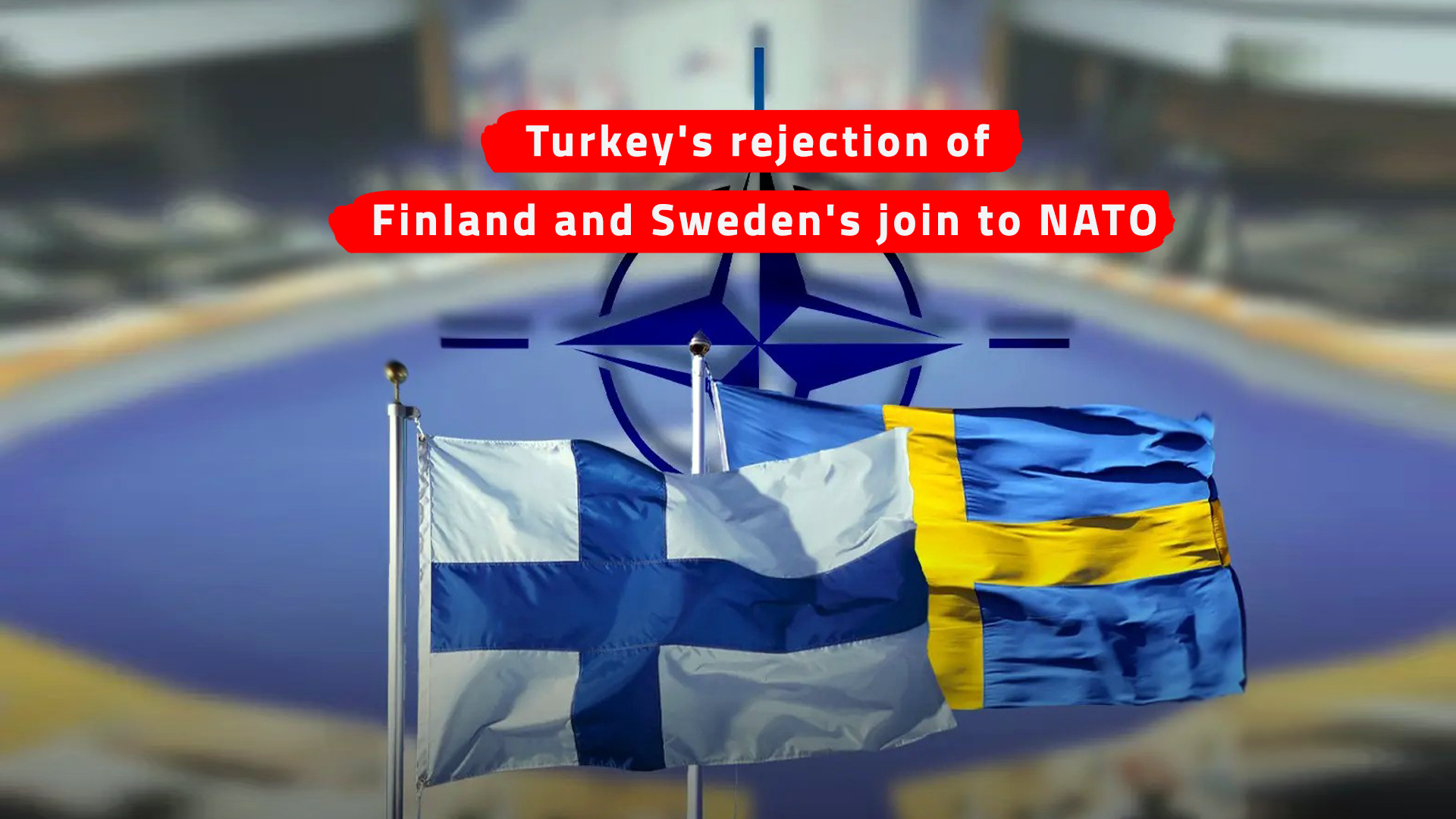Turkey’s rejection of Finland and Sweden’s join to NATO
Turkey's rejection of Finland and Sweden's join to NATO

Finland and Sweden have applied to join NATO against the backdrop of Russia’s war on Ukraine as the two countries look to boost their security in the wake of Russia’s war on Ukraine. However, the request was rejected by Turkey, a member of NATO, despite the approval of all members of the alliance for joining both countries, meaning that the matter is related to Turkish acceptance, and joining a country to NATO requires the unanimous approval of all the 30 NATO member states.
Turkey began exploiting the file to achieve its interests, to the extent that it demanded the Swedish government to hand it over an MP of Kurdish Iranian descent, Amineh Kakabaveh, in addition to 33 other people as a condition in exchange for Turkey’s approval of Stockholm’s joining NATO and demands Turkey to hand them over, in addition to stopping support for the Syrian Democratic Forces (SDF) and lifting Western sanctions on the supply of industrial products defensive to it.
In fact, Erdogan is suffering from the failure of his domestic policy, which has plunged Turkey into a serious economic crisis, as the annual inflation reached 70% last April, and trade deficit jumped nearly $25 billion. By refusing to join Finland and Sweden, Erdogan forced the NATO to make concessions to obtain gains and support for his settlement project in northern Syria and to obtain the Western green light to carry out a new invasion in the areas of the Autonomous Administration of North and East Syria (AANES). He also believes that the use of nationalist rhetoric would win the votes of nationalist and Islamist voters after his support rates declined ahead of the parliamentary and presidential elections next year. So it is not about Turkey’s security concerns as much as Erdogan’s concerns of rule.
Now Turkey is closer to Russia than NATO despite Ankara’s decision to ban Turkish airspace in front of Russian planes transporting soldiers and military equipment to Syria, because so far Western sanctions against Russia have not worked, so Erdogan still adheres to strong relations with Moscow. Over the past years, Turkish-Western relations have deteriorated, prompting Turkey to get closer to Moscow and build a broad partnership with it on many levels. However, the insistence of some Western countries, led by the US, Britain, Germany and France, to subject Moscow to its decisions regarding Ukraine, will make it imperative for Erdogan to determine his position on Russia in the near future and will pressure Turkey to accept Finland and Sweden joining the alliance. When Erdogan finds that the situation is tilting in favor of the West and that sanctions have begun to affect Russia, then Erdogan will turn from a friend of Putin into an enemy and will take the side of the West against Russia. Then Russia will not stand idly by and will work to hold Turkey accountable, and Turkey will pay the bill for Erdogan’s foreign policy.
In this context, Turkey’s acceptance of Finland and Sweden’s demand will be the beginning of the end of the Russian-Turkish relationship, and the impact of the differences between them may reach Syria. It is likely that northern Syria will turn into a theater for Russia’s settlement of its accounts with Turkey, and the process of liberating the Syrian north from the Turkish occupation will begin, and the scope of the confrontation between Moscow and the NATO will expand to include Turkey and Syrian territory.




